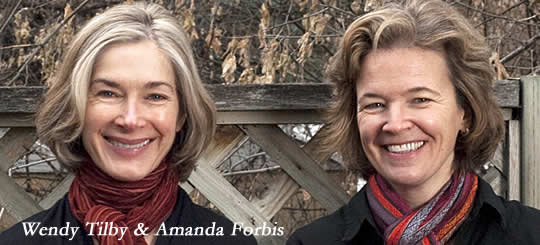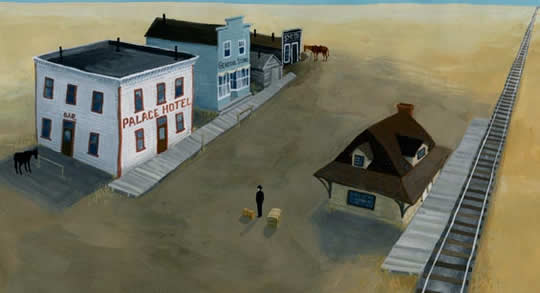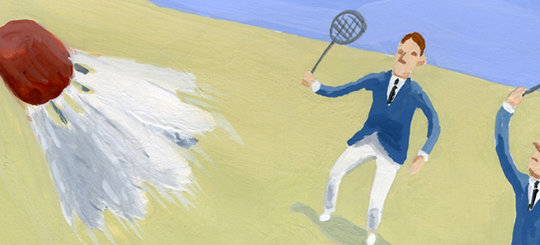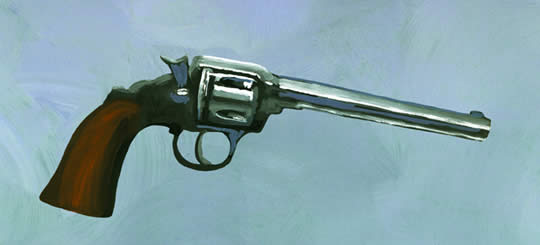 Wild Life happens in Alberta in 1909 in the wide open prairies of the Wild West. Enter a well-tailored young Englishman, fresh from the old country. He’s been sent to try his hand at ranching but his affection for badminton, bird watching and liquor leaves him little time for wrangling cattle. As the golden prairie summer turns to fall, it becomes clear that nothing in his refined upbringing has prepared him for the harsh conditions of the New World.
Wild Life happens in Alberta in 1909 in the wide open prairies of the Wild West. Enter a well-tailored young Englishman, fresh from the old country. He’s been sent to try his hand at ranching but his affection for badminton, bird watching and liquor leaves him little time for wrangling cattle. As the golden prairie summer turns to fall, it becomes clear that nothing in his refined upbringing has prepared him for the harsh conditions of the New World.
Borrowing playfully from the western, nature documentaries and eyewitness reportage, this short animated film offers a fresh, wry take on the Canadian frontier experience. By contrasting details as delicate as a teacup with the immensity of the prairie sky, the clash between civilization and wilderness is starkly rendered. Wild Life is about the beauty of the untamed prairie, the pang of being homesick and the folly of living dangerously out of context.
Both originally from Alberta, Amanda Forbis and Wendy Tilby first met in Vancouver at the Emily Carr College of Art and Design, where they studied film and animation. They each went on to create their own works with the National Film Board of Canada (The Reluctant Deckhand and Strings) before co-directing When the Day Breaks (1999), which received over thirty international awards, including the Palme d’Or in the Short Film category at Cannes, Grand Prix at Annecy, Zagreb and Hiroshima, and an Academy Award nomination. They have continued to collaborate on workshops, commercials and commissioned projects. Their commercial work includes a series of ads for United Airlines that showcases their fluid storytelling. In 2003, they relocated from Montreal to Calgary, where they made Wild Life.
Bijan Tehrani: How did you come up with the idea of making the “Wild Life”?
Amanda Forbis: It’s an old idea I came up when I first learned about the concept of the Remittance Man, which is a phenomenon in Australia and England, where young English gentleman were sent out to make something of themselves in the colonies. They would sometimes get into trouble at home and their parents would get irritated with them and then send them away with a monthly allowance. Very often they knew how to speak Latin and how to play polo but they knew nothing about the environment that they were going to and, so very often, they just messed around. I did not know what I wanted to do with the idea and then, when Wendy and I started working together, we came up with our next film idea and we thought that this would make a good short animated film.
 BT: The visual style of the film is simply beautiful; how did you decide to animate and produce your imagery?
BT: The visual style of the film is simply beautiful; how did you decide to animate and produce your imagery?
Wendy Tilby: We did a lot of experimenting before we arrived at the technique. We had originally thought that we would use some sort of a computer technique because we were just getting up to speed with the computer at that point, and we tried various methods of incorporating computer lines and tones. Then we found that we were unsatisfied with that in terms of catching some of the landscapes, and we ended up painting the whole thing by hand. What we did was that we animated by using Flash software on the computer, and then we printed out each frame onto paper and then painted on top of that using gloss, which is like an opaque water color, and then we scanned every image back into the computer.
AF: We also thought that a somewhat oak-colored palate would be nice. Also, you can’t help but have simplicity when the environment is what it is, so we tried to keep it a very clean environment.
BT: Was the project strictly pre-scripted before animating began, or did you make changes along the way?
WT: A lot of things changed over the process of making it—we are not the type of filmmakers that do a storyboard and then execute a storyboard. The idea remains much like the original script that we had, but the images themselves, the order in which they appear, and what they look like was very organic in how it evolved. We continued to cut things in and we made decisions about what should come after and what should come before, based on how we felt it was working. So it was not very linear in how it evolved, but the main idea remained pretty much the same from the beginning.
BT: As far as the landscape that looks so beautiful in the film, did you study real landscapes to develop this image or did this come mostly from your imagination?
AF: Well we both grew up on that landscape. We live in the foothills attached to the prairie and we wanted to pay homage to it, so we did indeed study it quite a bit and you can study it by just walking out of the door and seeing the grasses and the fields. It’s hard with neither of us around and we almost feel that we didn’t do it justice, but we certainly tried.
BT: Despite this being a short film, there are many different layers: you see humor, tragedy, and the beauty of nature. Did you structure the film this way intentionally?
WT: That is very satisfying that you say that because, yes, that was intentional. We are both very attracted to bittersweet stories, stories that encompass opposite qualities at once—for instance, comedy and tragedy. Hopefully many of these moments in this film have both of those feelings.  AF: We are attracted to that range of emotions, from the start of the script we knew that the characters were going to die and that was not going to change, so it was important that we structure these characters with levity. It is difficult to work with a character that you know that you are going to kill off; you don’t want to be manipulative in making him. We had to make a character that was sympathetic but we still needed the film to have all kinds of levels, and the humor at the beginning helped us find that balance.
AF: We are attracted to that range of emotions, from the start of the script we knew that the characters were going to die and that was not going to change, so it was important that we structure these characters with levity. It is difficult to work with a character that you know that you are going to kill off; you don’t want to be manipulative in making him. We had to make a character that was sympathetic but we still needed the film to have all kinds of levels, and the humor at the beginning helped us find that balance.
BT: How much did working with the National Film Board of Canada assist you with making this film?
AF: They helped us produce the film, and we were able to do pretty much whatever we wanted to. We had great discussions with our producers but, for the most part, they stood back and let us do what we wanted to do.
BT: How do you see your chances of winning the Oscar, and how would a win assist you in the future?
AF: I wouldn’t even guess about our chances; I really have no idea. Both Wendy and I would be excited to win. The nomination means a lot. The last nomination opened some really interesting doors for us, but it is just an honor to be nominated and winning would be a nice bonus.

